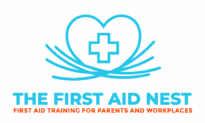First Aid Kits for Boaters: Must Have Supplies for Ocean Adventures
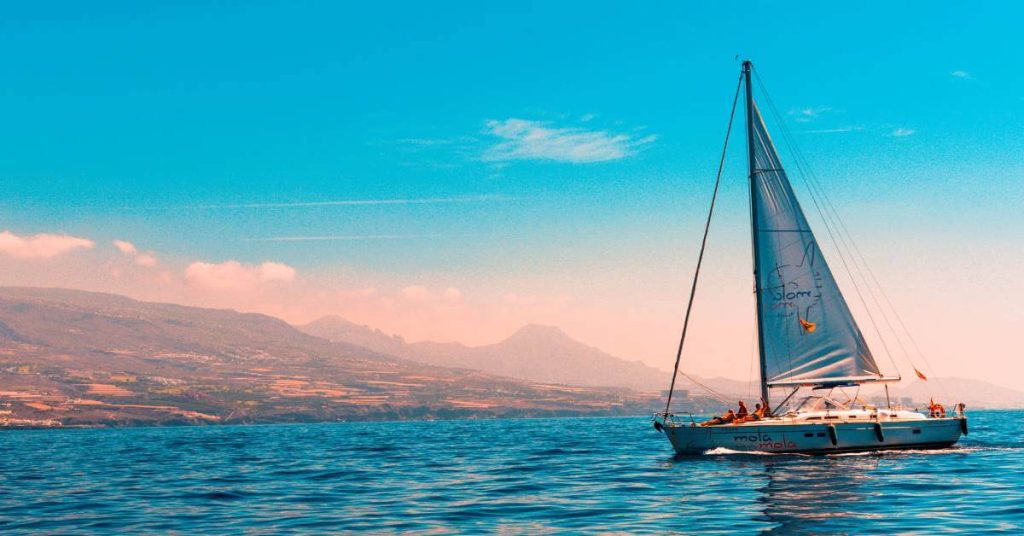
Hello, fellow sea explorers! Nothing beats the sensation of setting sail on the open sea, with the wind in your hair and the waves beneath your boat.
But wait a minute – we all know the ocean can throw unexpected challenges, and being prepared is the key.
Accidents happen, even in the calmest of waters. That is where a well-stocked first aid kit comes in handy.
Whether you’re a casual cruiser or a boating expert, having an adequate first aid kit onboard is like having a backup plan for fun times.
First Aid Kit Essentials for Ocean Adventures
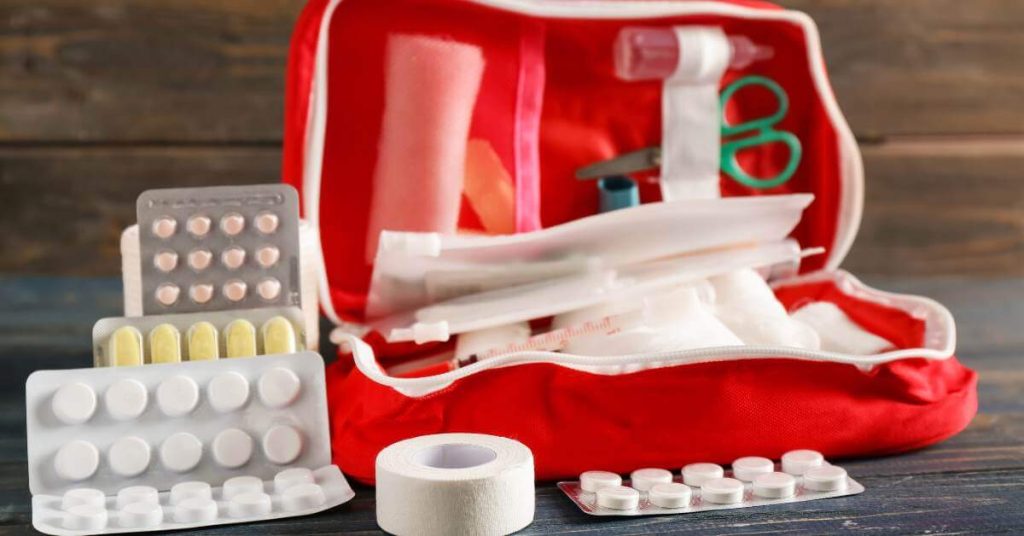
Basic First Aid Supplies
Adhesive bandages, sterile gauze pads, and medical tape are the foundation of any first aid kit. These simple supplies can be helpful when treating minor cuts, scrapes, and abrasions that may occur while maneuvering on the boat.
- Adhesive bandages in various sizes
- Sterile gauze pads and adhesive tape
- Antiseptic wipes and alcohol (hand rub)
- Tweezers and scissors
- Disposable gloves
Wound Care
Burn gel and antiseptic wipes are essential for treating minor burns such as sunburn and disinfecting wounds. Sterile saline solution is also necessary for cleaning wounds before dressing them, preventing infection, and promoting proper healing.
- Hydrogel or burn gel
- Sterile saline solution
- Wound closure strips or butterfly bandages
- Antibiotic ointment
Medications
Pain relievers, such as ibuprofen or paracetamol, can provide relief for minor aches and pains that might arise during the journey. Seasickness medication is also a good addition for those prone to motion sickness. It’s always a good idea to have antihistamines on hand for any allergic reactions that may occur.
- Pain relievers (ibuprofen, paracetamol)
- Antihistamines
- Seasickness medication
- Prescription medications (if applicable)
- EpiPen for severe allergic reactions
Communication and Navigation
In an emergency, flares, whistles, or a signal mirror are important for alerting others. In situations where immediate assistance is required, a fully charged cell phone with emergency contacts saved can be lifesaving. A GPS device or a marine radio can also be very helpful for communication and navigation.
- Fully charged cell phone with emergency contacts saved
- Flares, whistles, or signal mirror
- A GPS device or marine radio for communication
Information and Guidebook
A first aid manual or guidebook can provide detailed instructions for administering basic first aid and dealing with common medical emergencies. Having medical history forms on board for each passenger can also be useful in case of a medical emergency.
- First aid manual or guidebook
- Medical history forms for each passenger
- Emergency contact information
Personal Items
High SPF sunscreen and lip balm are essential for protecting yourself and your fellow passengers from the sun’s harsh rays. Another important addition to keep pesky bugs at bay is insect repellent. If you wear prescription glasses or contact lenses, keep spares on hand in case of loss or damage.
- Sunscreen and lip balm with high SPF
- Insect repellent
- Prescription eyewear and spare contact lenses
Onboard Basic Safety Equipment
Aside from the first aid kit, there is a variety of essential onboard safety equipment that can help ensure a safe and enjoyable voyage. So, before you set sail, let’s take a closer look at the basic safety equipment you should have on board to confidently navigate the ocean.
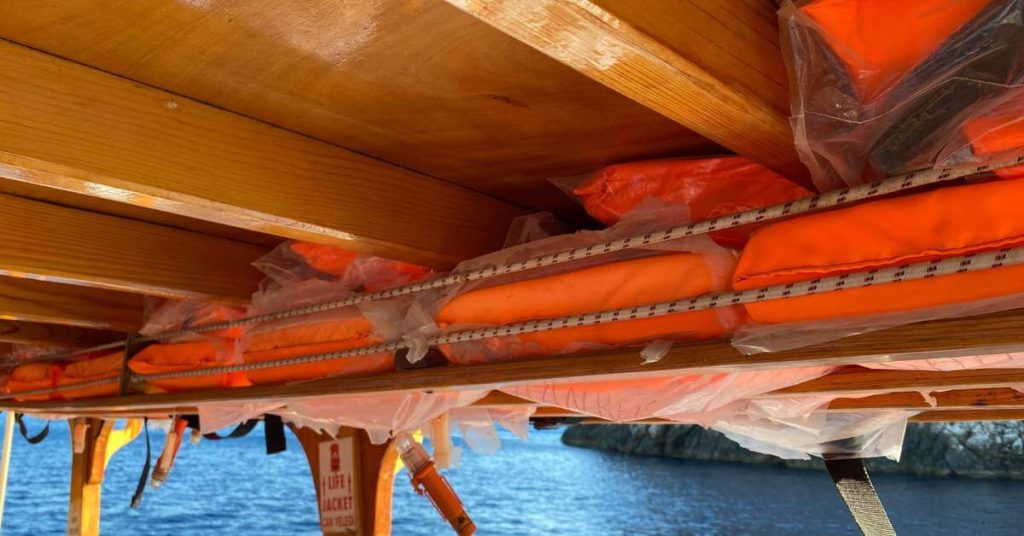
Life Jackets and Personal Flotation Devices (PFDs)
These are not optional items to have on board; they are required. Make sure that each passenger has a properly fitted life jacket or PFD.
Throwable Flotation Devices
Throwable life rings or cushions can be useful in helping someone who has fallen overboard. It provides additional flotation and a way to keep someone floating until help arrives.
Anchors and Lines
An anchor is like the boat’s emergency brake. It is essential for stopping your boat in case of engine failure or other issues. Make sure you have the right size and type of anchor for your boat, along with strong lines to secure the vessel when needed.
Navigation Lights
Navigation lights are essential when boating at night or in low visibility conditions to ensure your boat is visible to other vessels. These lights aid in collision avoidance and keep everyone on the water safe.
Bilge Pump
A bilge pump removes water from the inside of the boat. It’s a necessary tool for keeping your boat from taking on water and potentially sinking.
- Tool Kit:
A basic tool kit containing wrenches, screwdrivers, pliers, and other essential tools can be invaluable for making minor repairs or adjustments while at sea.
Preparedness Beyond Supplies:
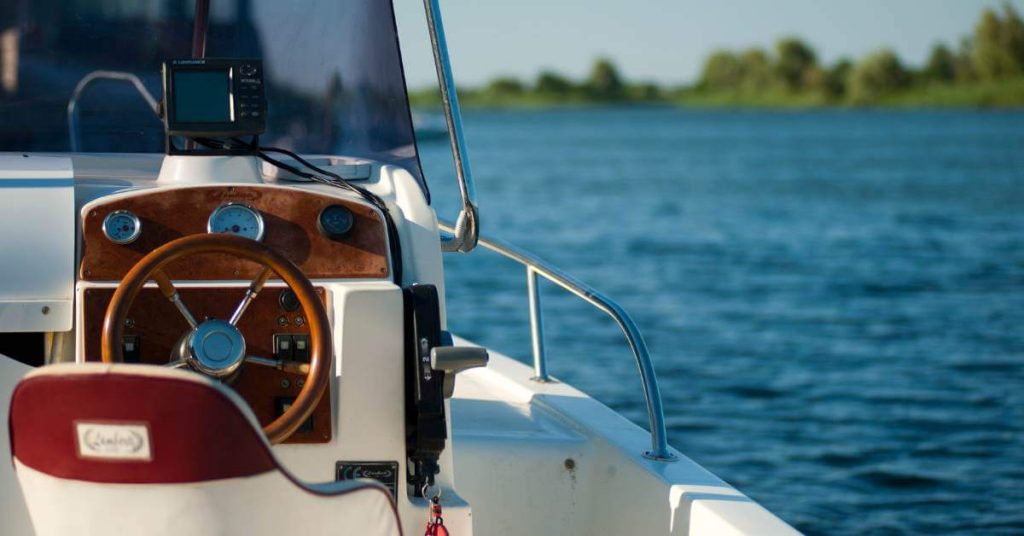
Building Your Skills and Abilities: Enroll or book a first aid course to refresh your skills and boost your confidence in managing emergencies.
Regular Checks: Inspect and restock your kit regularly, discarding expired items and adding new essentials.
Safety Briefing: Make sure that everyone knows the first aid kit’s whereabouts and its contents, ensuring everyone is prepared to lend a hand if necessary.
Communication Plan: Set up transparent communication guidelines and emergency contact information, guaranteeing that everyone in the boat understands how to respond promptly and effectively.
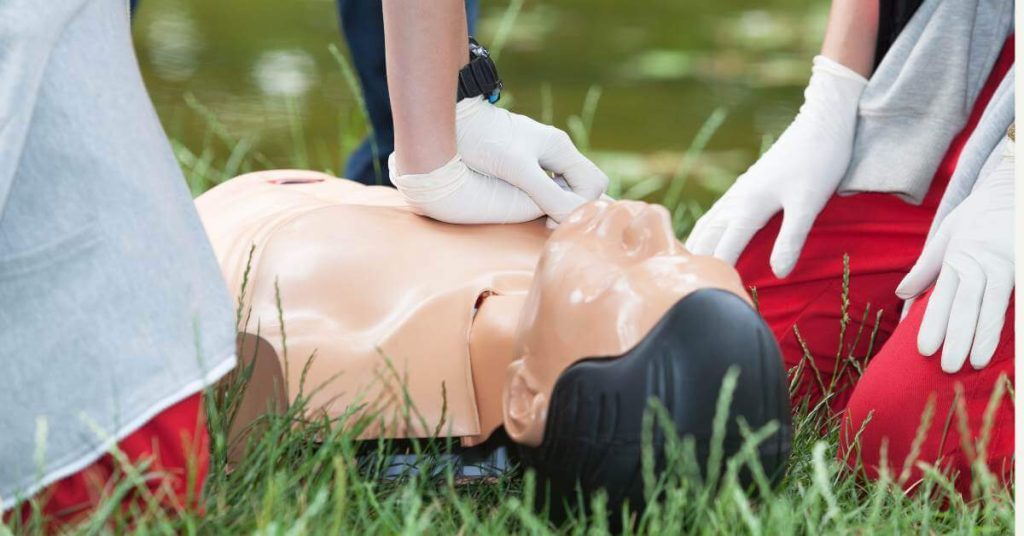
Injuries and accidents can occur anywhere and anytime, but those that occur on a boat present an additional challenge because help is not always convenient or readily available. That is why it is so important to have not only basic first aid equipment but also the skills and preparation during an emergency.
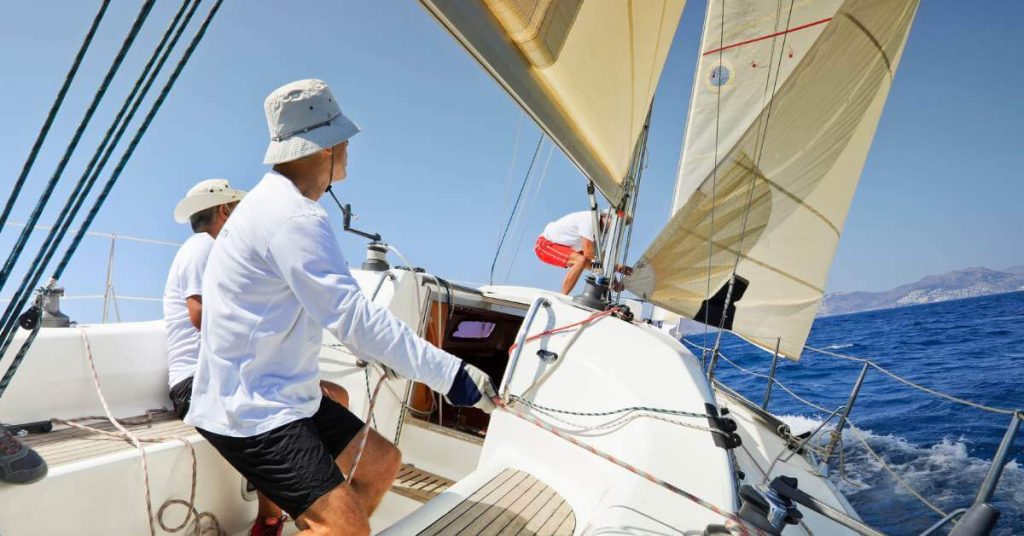
As you plan your ocean adventure, keep in mind that being well-equipped entails more than just having the right equipment; it also entails respecting the environment, practicing responsible boating, and ensuring the safety and enjoyment of everyone on board. So gather your supplies, chart your course, and set sail for an adventure on the open seas.
Don’t overlook the value of a first aid course. Learning how to treat common wounds, care for a passenger in shock or even perform CPR might prove valuable whether on land or water.
First Aid Certificate
The First Aid Nest run public and workplace first aid courses, Australia wide.
Our workplace first aid courses can be run at your site.
Our public classes are here in Sydney and are the best option if you are an individual, a couple or a group of just a few people.
Our sophisticated system will take the headache out of renewal for you too. Lose your certificate? No problem, just ;log in and download your certificate again anytime. We will also send you reminders about when your certificate is about to expire!
Book your spot or workplace with us today, contact us with any questions, or head to our FAQ page.
